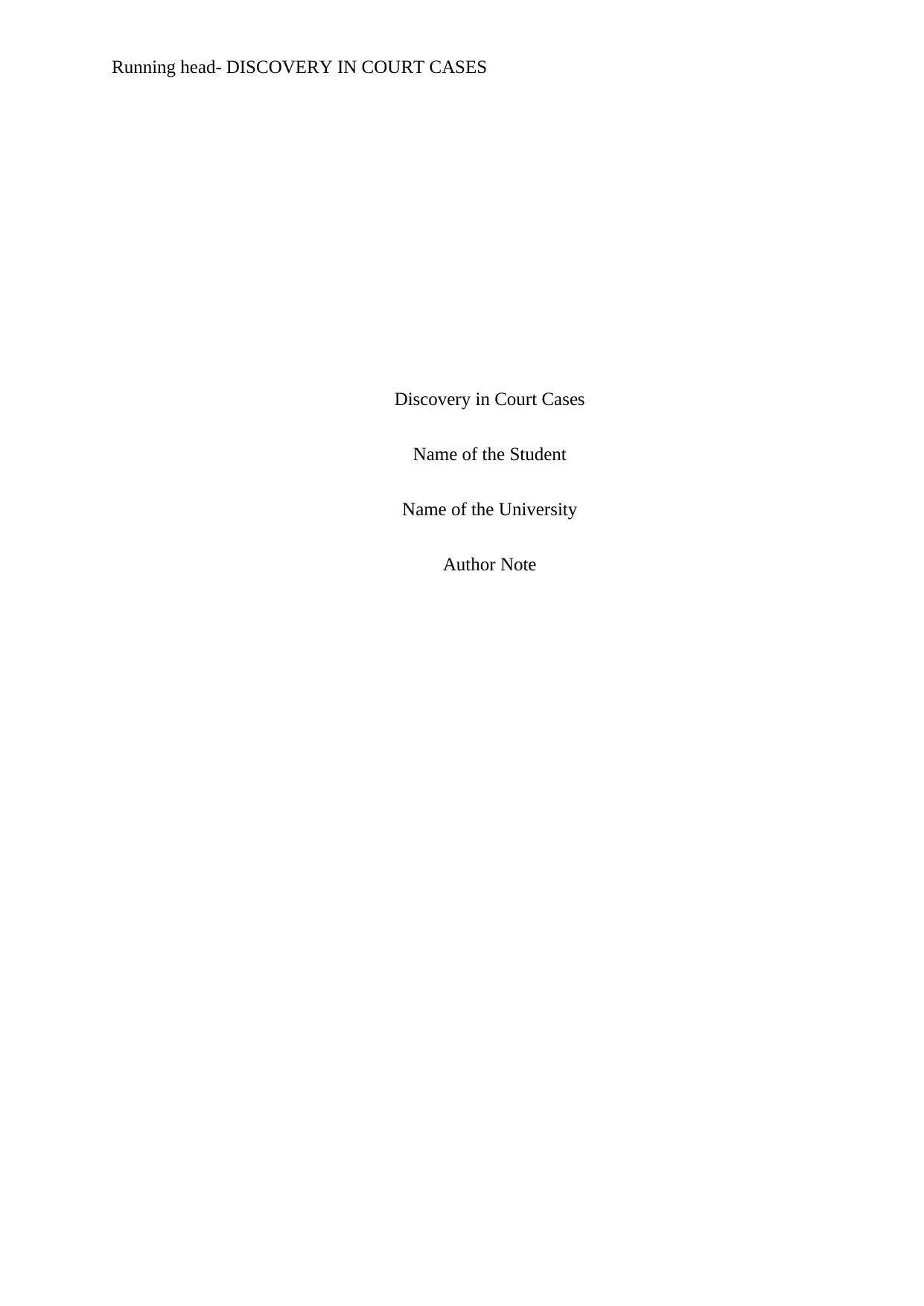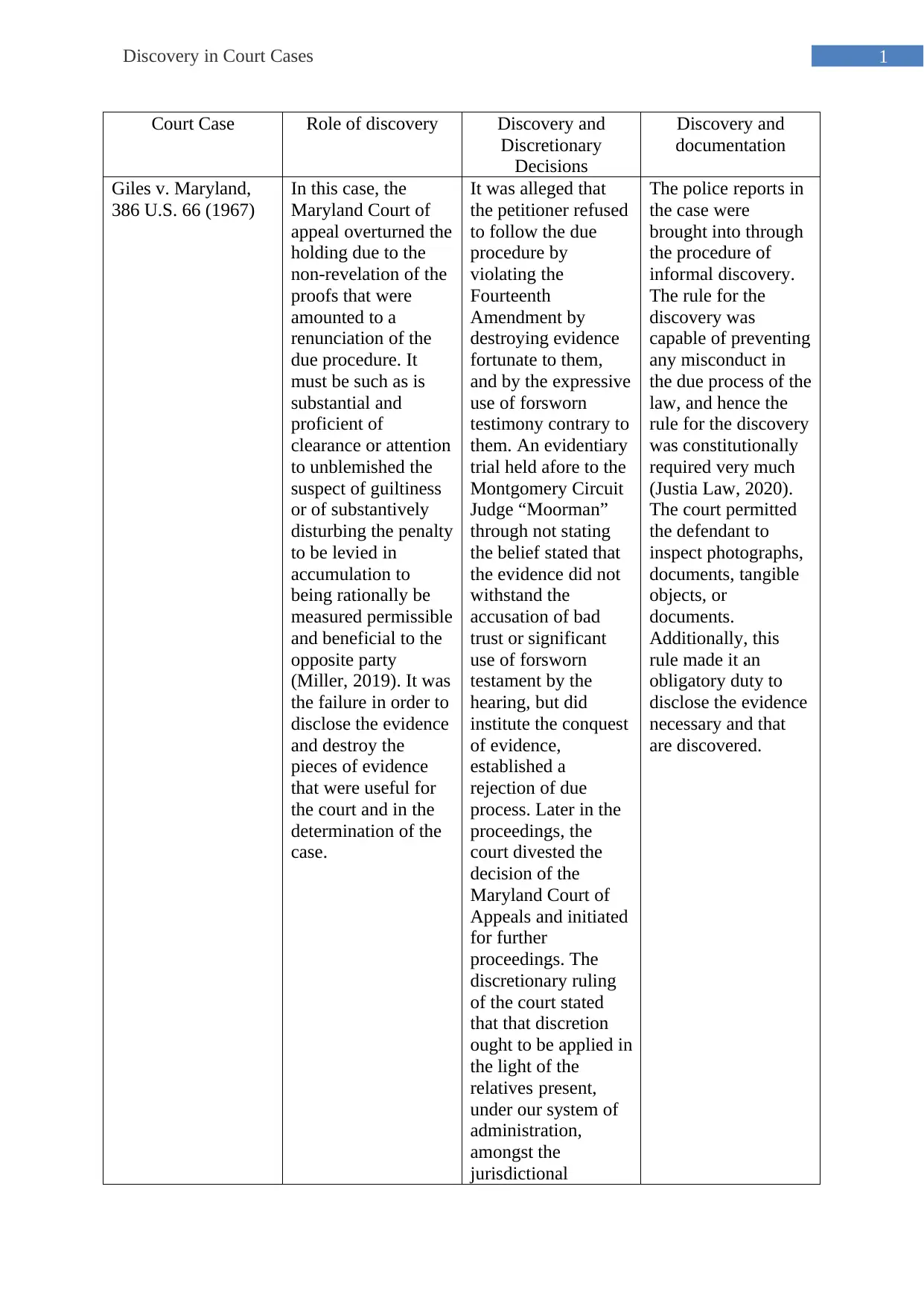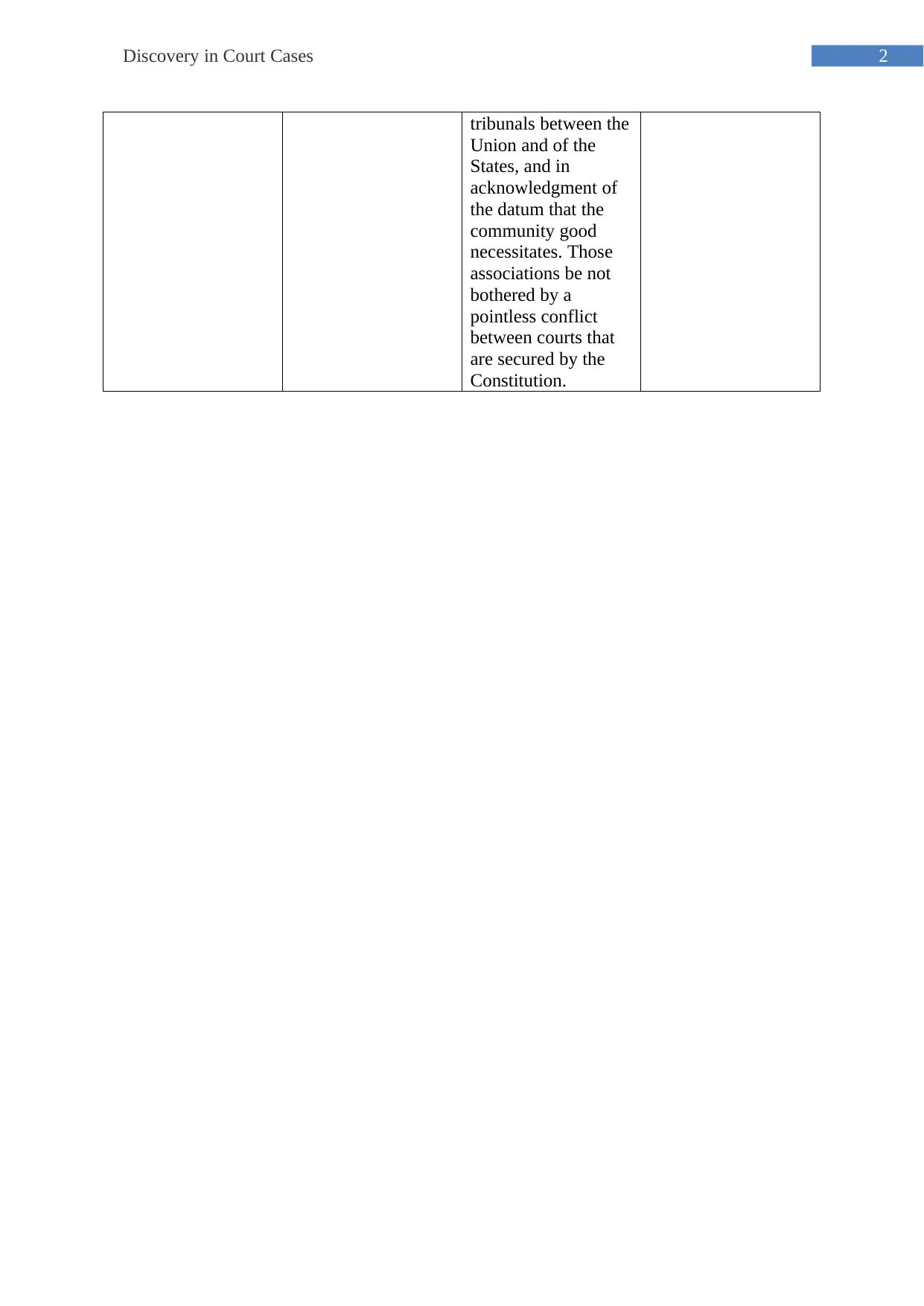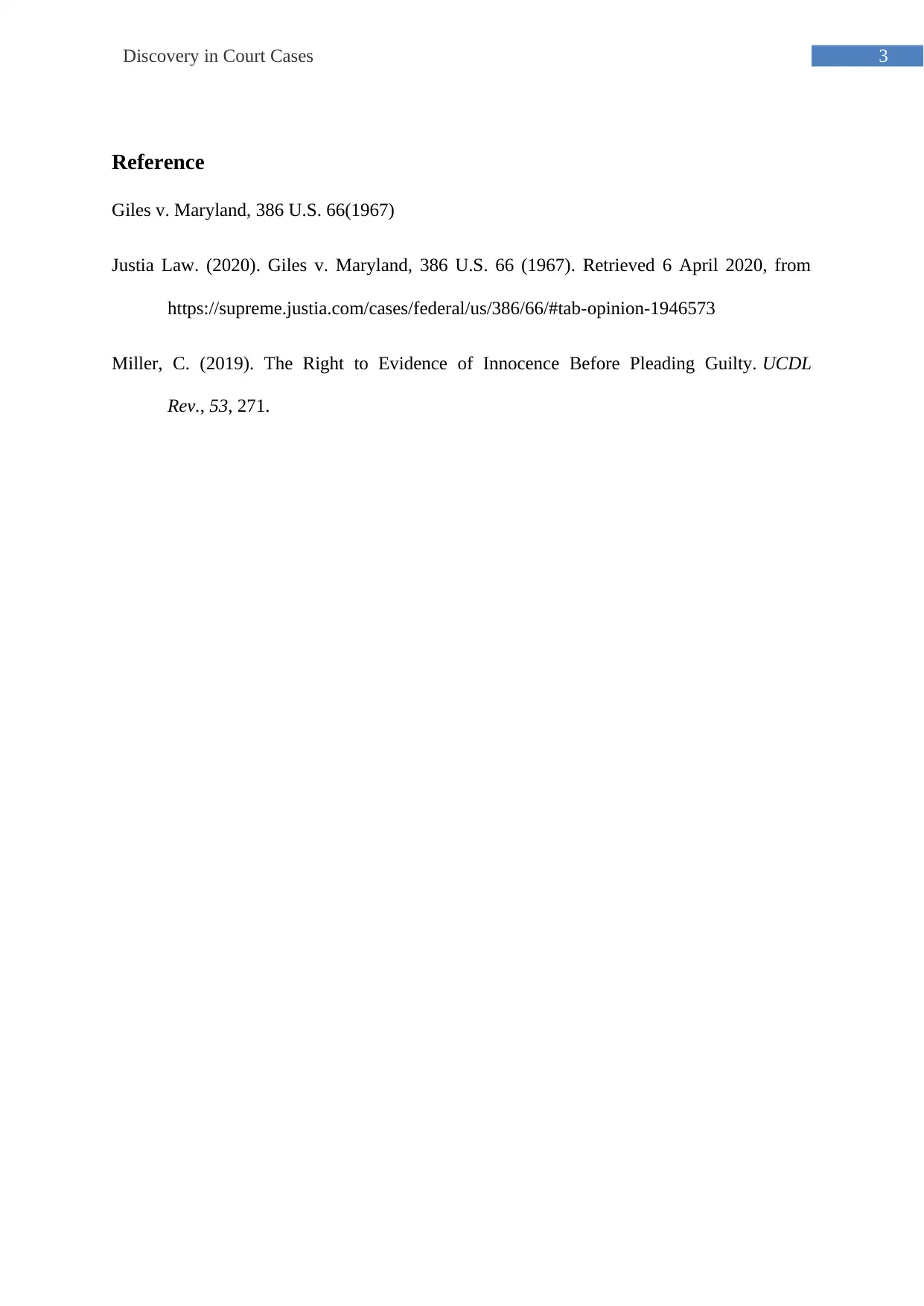University Assignment: CJ 230 Module 6 - Discovery in Court Cases
VerifiedAdded on 2022/09/12
|4
|497
|36
Homework Assignment
AI Summary
This assignment analyzes the role of discovery in court cases, specifically focusing on the case of Giles v. Maryland. The assignment begins with an APA formatted citation of the case and then delves into a discussion of the role discovery played, highlighting the importance of evidence disclosure and the consequences of failing to do so, as seen in the overturning of the original ruling due to the non-revelation of proofs. The analysis then examines how discovery affects discretionary decisions made by the court, emphasizing the need for a balance between the Union and State jurisdictional tribunals and the community good. The document also touches on the role of informal discovery, such as police reports, and how it is constitutionally required. Finally, the assignment underscores the importance of proper documentation and how the court allowed the defendant to inspect photographs, documents, and tangible objects. References to the case and related legal concepts are also provided.
1 out of 4








![[object Object]](/_next/static/media/star-bottom.7253800d.svg)